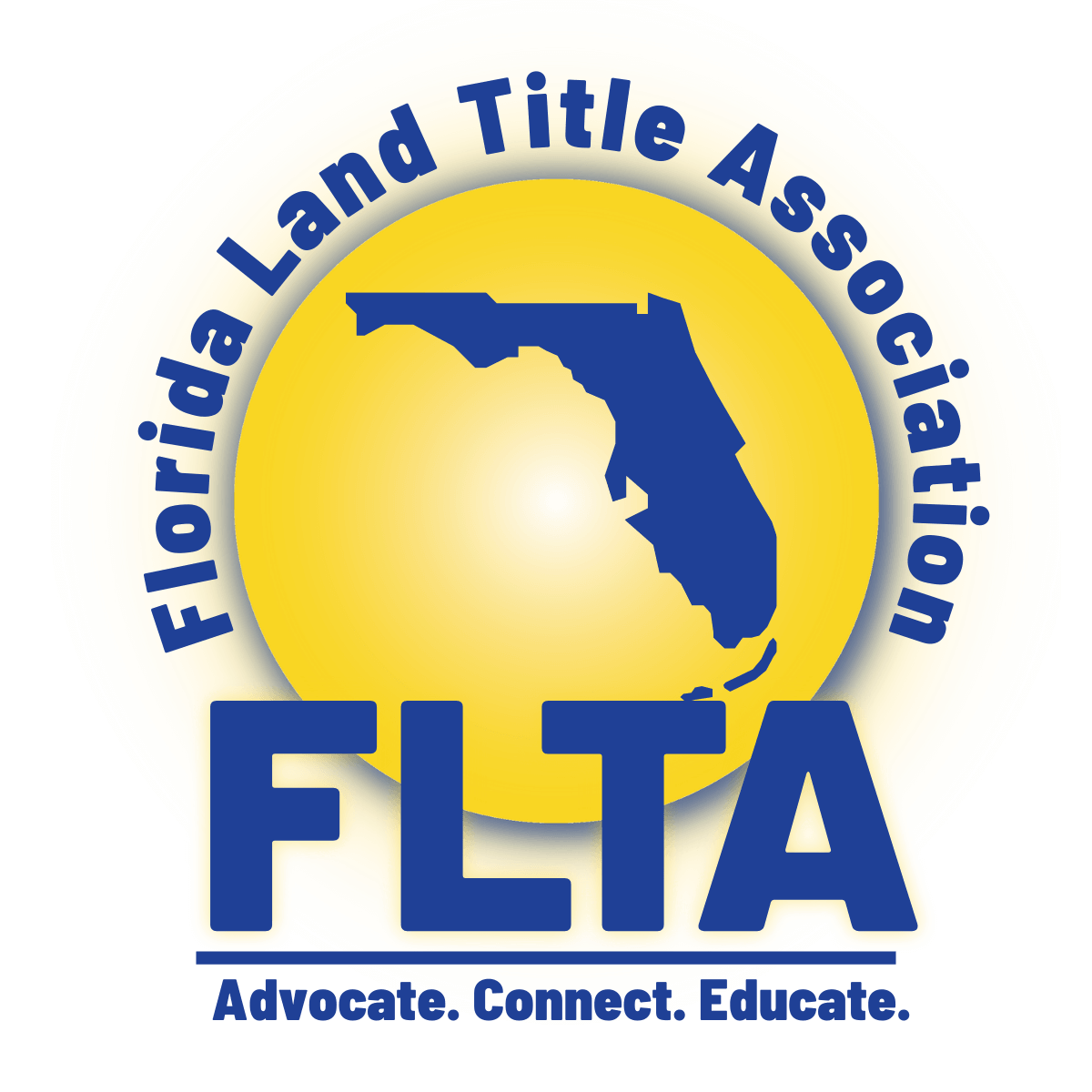FinCEN Residential Real Estate Rule Reporting and Title Agency’s Ability to Charge
As Florida’s title and settlement services industry prepares for FinCEN’s Residential Real Estate Reporting rule going into effect March 1st, many agents have asked a number of questions to prepare.…
Read MoreOctober Research LLC Hosts Two Webinars This Month
Q4 Economic Outlook featuring Sam Williamson 2 p.m. ET, Oct. 16th Join us for the next edition of the popular Economic Outlook series featuring First American’s Sam Williamson, where you’ll…
Read MoreFinCEN Announces Postponement of Residential Real Estate Reporting Until March 1, 2026
WASHINGTON–To reduce business burden and ensure effective regulation, the U.S. Department of the Treasury’s Financial Crimes Enforcement Network (FinCEN) today announced that it will postpone reporting requirements of the Anti-Money Laundering…
Read MoreTake Action! Fraud Alert: “Ghost Title Agency”
FLTA Members- Each month, Title Agent and Law Firm Members come together as the Agents’ Section of FLTA to discuss industry issues, consumer protections, and legislative or judicial activity. During…
Read MoreEmergency Briefing Webinar: CFPB’s Shake-up & Its Impact on You
Complimentary from October Research, LLC The status of the Consumer Financial Protection Bureau (CFPB) is changing practically every day. To help navigate this rapidly evolving landscape, we’re hosting an emergency…
Read MoreIndustry and Regulatory Outlook webinar: Complimentary
Join October Research, LLC as they explore the latest trends affecting title insurance and mortgage professionals on the annual Industry and Regulatory Outlook webinar. To give you a competitive edge, October Research…
Read MoreTitle & Escrow Meetup: Picnic and Yoga
October 11, 2024 | 5:00 PM – 7:30 PM | Crandon Park Key Biscayne, Miami, FL Hosted by Rexera Hey Miami, let’s hang out! Join us for a good time,…
Read MoreWomen’s Leadership Summit (WLS) 2024 – Agenda now available
Nov. 3-4, Cleveland, OH The Women’s Leadership Summit (WLS) 2024 has released this year’s agenda, featuring interactive sessions on delegation, collaboration, negotiation, networking, communication, resilience, wellness and more. This is your opportunity…
Read MoreEconomic Forecast Series featuring Doug Duncan
Oct. 15, 2024, at 2 p.m. ET, Complimentary Join the team at October Research, LLC for an exclusive webinar featuring Fannie Mae’s acclaimed economist, Doug Duncan, as he returns to the Economic…
Read More
